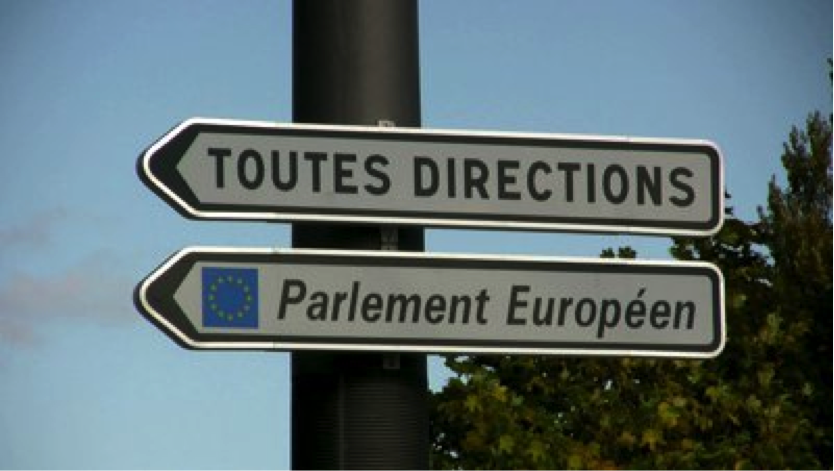
BY AUBE REY LESCURE:
Big news. The European Parliament finally managed to vote on something: that they are going to vote on where they are going to vote.
The advisory vote initiated the selection process of a single meeting place for the European Parliament, which now splits its time between Strasbourg, France and Brussels, Belgium. That’s twice the electricity bill, building maintenance fee, staff salaries and plane tickets, for no good reason at all. More than half a century of doubled expenses later, the EP is finally getting around to addressing its slightly wasteful lifestyle, but with a simmering suspense that is killing us. So, will it be the sausage or the waffle?

Do not be fooled for a second that the decision will be easy and painless and not in itself a colossal waste of time, effort and euros. A bitter fight will go down, for the French have already announced, with much stone-faced irritation, that they would not allow Strasbourg to simply be scratched from the scene. The resolution, spearheaded by the Germans and the British, does not specifically name Brussels as the seat of preference—probably because there is no need to explicitly do so, politely leaving some dignity to the disfavored child. Too bad said child is known to be an enfant terrible who, risking neglect, will burn the house down with him (as the French have made clear)—so best of luck, European Parliament, it was really time to start keeping things interesting with some venomous internal court intrigue.
In all seriousness, the resolution in itself makes sense. The Great Schism’s administrational costs, as estimated by the New York Times, reach up to 200 million euros per year. The strategic value of the shuttle sessions is zero: arguably, they only serve to enhance the Parliament’s legendary bureaucratic sluggishness and sheer irrelevance. As the European Council (made up of heads of states)’s didactic power gradually mounts, the European Parliament is struggling to make a case for why anyone should care about its existence. Over the years, voter turnout in direct elections of parliament members has stupendously decreased from 60% to 40%, which in itself is a pretty sonorous vote of no confidence.
Still, the approved resolution calls for a survey on EU citizens’ views on whether the Parliament should keep its business cross-border or in one site, since direct democracy must be put to work and people in retirement homes need something to occupy themselves with. If the ‘one site’ option wins, there’ll surely be another poll on whether the Getting-Nothing-Done HQs should be Strasbourg or Brussels, and whether the Parliament members’ lunch sandwiches during the voting session should be turkey or ham. So keep a close watch on the news, because within the next two and a half years, we might just have a winner.
Aube Rey Lescure ’15 is in Davenport College. She writes on the European Union, particularly France, the United Kingdom, and Germany, focusing on both significant internal events and cross-Atlantic relations. Contact her at aube.reylescure@yale.edu.